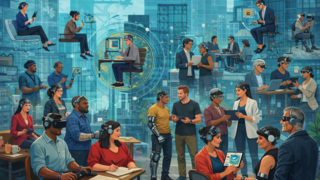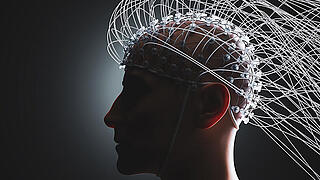In progress
Neurotechnologies are on the cusp of a societal shift. What was once reserved for specialised clinical applications now has the potential to become much more widely applicable in the future, thanks in particular to advances in artificial intelligence and device design. Brain-computer interfaces, “mind-reading” technologies, intelligent prostheses or EEG headsets for mental well-being, gaming or performance enhancement – all of these could soon find their way into everyday life, work and leisure.
This brings new ethical and social questions to the fore: how do we protect mental autonomy and privacy if brain data and functions can increasingly be read and influenced beyond controlled medical applications? What would it mean for our society and our self-image if neurotechnologies became commonplace in our private or professional lives? And how can we ensure fair access to such technologies as well as their long-term safety and functionality?
The German Ethics Council’s opinion will address these and other questions to provide a well-founded assessment of the opportunities and risks – before new technological realities become tacitly accepted.
Working group
- Aldo Faisal (spokesperson)
- Hans-Georg Dederer (deputy spokesperson)
- Eva Winkler (deputy spokesperson)
- Cornelia Betsch
- Jochen Sautermeister
- Susanne Schreiber


